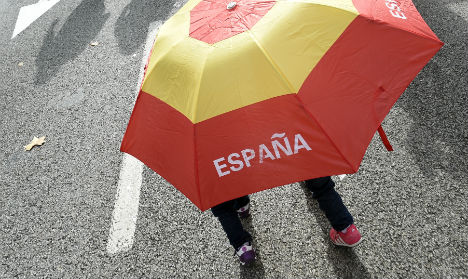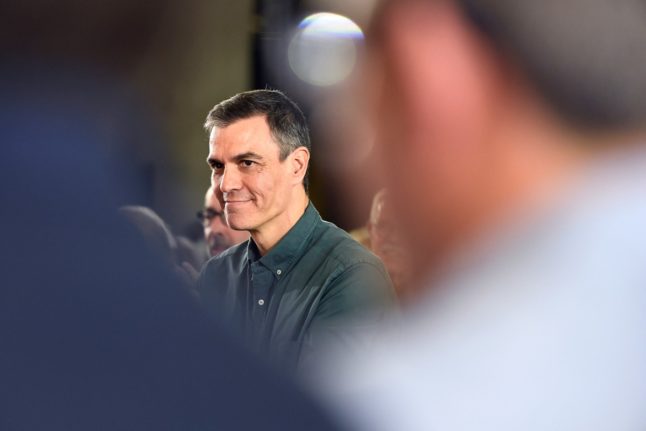No real government

Acting PM Mariano Rajoy has failed to form a government. Photo: AFP
Since elections in December 2015, Spain has been governed by a caretaker executive that cannot take major decisions.
The deadlock began after the parliamentary election in December failed to give any party an absolute majority, as upstart groupings Ciudadanos and Podemos shook up Spain's long-established two-party system.
Efforts to forge a coalition failed as rival parties were unable to overcome their differences.
This prompted a repeat election in June with a similar result, and a similar inability to come to any kind of government deal.
In both cases, the ruling conservative Popular Party won but without an absolute majority, and it failed to win the necessary support to push through a coalition government.
Now the parties are up against an October 31st constitutional deadline, after which the king will have to dissolve parliament and call a third round of elections.
The left in dire straits

Socialist leader Pedro Sanchez is facing an uprising from within the party. Photo: AFP
The Socialist party (PSOE) – the oldest in Spain at 137 years old – is going through such a crisis that some say it is on the verge of “civil war”.
Seventeen members of the party's executive resigned on Wednesday in a bid to oust leader Pedro Sanchez, who was elected by grassroots members in 2014.
His detractors blame him for historically bad results in December and June general elections, and in regional polls at the weekend.
They also want the PSOE to use its 85 parliamentary seats to help unblock the political paralysis and allow a right-wing coalition government through by abstaining in the necessary vote of confidence.
That, they argue, would avoid a third round of elections and the party could go into opposition and build up strength again.
But Sanchez refuses, and is so far hanging on to his post.
The emergence of the far-left Podemos is partly responsible for the crisis, having attracted millions of mostly young voters who would normally have cast their ballots for the PSOE.
But Podemos too is in crisis, divided between moderates embodied by number two Inigo Errejon and a more radical faction led by current chief Pablo Iglesias.
Green-communist party Izquierda Unida, meanwhile, is also losing ground and some within the grouping want it to merge with Podemos.
Separatism on the rise

Photo: AFP
Spain, where regions have a high degree of autonomy, is faced with a rising pro-independence movement in Catalonia prompted by the economic crisis and the ruling conservatives' refusal to negotiate.
The northeastern region is now run by a pro-independence coalition that won regional elections last year with an absolute majority.
As such, regional president Carles Puigdemont on Wednesday pledged he would call an independence referendum in September 2017.
He has also laid out the programme for his region's secession from Spain, saying that by the end of June next year, parliament will approve the necessary laws for Catalonia to be able to function as an independent state.
A recovering economy

Photo: AFP
After a devastating crisis sparked in 2008 when the housing bubble burst, economic growth picked up again in 2014.
The economy grew 3.2 percent last year and is expected to increase at the same rate in 2016.
But there are concerns that a protracted political deadlock will hit growth as investors fear instability and public procurement is frozen.
On Thursday Spain's central bank warned that the political impasse in the country could have negative economic effects and that a prolonged period of interim government would delay necessary reforms.
Unemployment is also still sky high. At 20 percent, it is the highest in the European Union after Greece.
And Spain is still battling to reduce its public deficit to below the level of three-percent of GDP set by the European Commission.
The central bank predicts that Spain's budget deficits this year and next would be 4.9 percent and 3.6 percent of annual GDP.
By Michaela Cancela-Kieffer / AFP



 Please whitelist us to continue reading.
Please whitelist us to continue reading.
Member comments